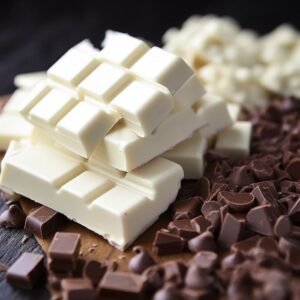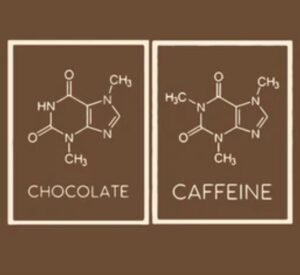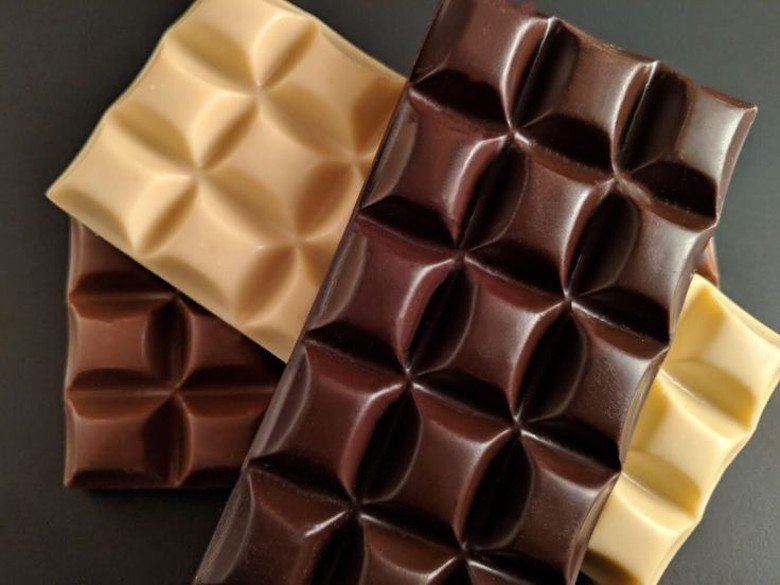Dark chocolate and white chocolate are two distinct types of chocolate with differences in composition, flavor, and nutritional content.
–>Composition
–>Flavor
–>Nutritional Content:
–>Uses
–>Caffeine Content:
–>Texture and Mouthfeel
–>Caffeine Content
–>Texture and Mouthfeel
–>Color and Appearance
–>Allergen Considerations
–>Shelf Life
- Composition:

Dark Chocolate:
Dark chocolate is made from cocoa solids, cocoa butter, and sugar. It contains a higher percentage of cocoa solids compared to milk or white chocolate. The cocoa solids provide the characteristic rich and intense chocolate flavor.
White Chocolate:
White chocolate is made from cocoa butter, sugar, and milk solids. It does not contain cocoa solids, which gives it its pale color and a milder flavor compared to dark chocolate.
- Flavor:

->Dark Chocolate:
Dark chocolate typically has a rich, slightly bitter flavor with notes of cocoa. The intensity of the flavor can vary depending on the percentage of cocoa solids, with higher percentages having a more pronounced cocoa taste.
->White Chocolate:
White chocolate has a sweeter, creamier taste due to its higher sugar content and the absence of cocoa solids. It lacks the characteristic chocolate flavor found in dark chocolate and has more of a vanilla-like taste.
- Nutritional Content:

->Dark Chocolate:
Dark chocolate is often considered the healthier option due to its higher cocoa content, which provides antioxidants like flavonoids. It also tends to have less sugar than white chocolate.
->White Chocolate:
White chocolate contains more sugar and fewer cocoa solids compared to dark chocolate. As a result, it generally has more calories and a higher fat content, mainly from cocoa butter and milk solids
- Uses:
->Dark Chocolate:
Dark chocolate is commonly used in baking, confections, and as a standalone treat. It pairs well with ingredients like nuts, fruits, and spices.
->White Chocolate:
White chocolate is often used in desserts, such as cakes, cookies, and frostings. It can also be incorporated into beverages like hot chocolate or used as a topping for desserts.
- Caffeine Content:

->Dark Chocolate:
Dark chocolate contains small amounts of caffeine due to the cocoa solids. The exact amount can vary depending on the cocoa content, but generally, the higher the cocoa percentage, the more caffeine it contains.
->White Chocolate:
White chocolate does not contain cocoa solids and therefore does not contain caffeine.
- Texture and Mouthfeel:

->Dark Chocolate:
Dark chocolate tends to have a firmer texture and a smoother melt compared to white chocolate. This is due to the higher cocoa content and lower fat content.
->White Chocolate:
White chocolate has a creamier texture and a faster melt due to its higher fat content from cocoa butter and milk solids.
- Color and Appearance
->Dark Chocolate:
Dark chocolate has a deep brown color, ranging from dark to almost black, depending on the cocoa percentage. It often has a glossy appearance when properly tempered.
->White Chocolate:
White chocolate has a pale ivory color. It lacks the characteristic brown color of traditional chocolate due to the absence of cocoa solids.
- Allergen Considerations:

->Dark Chocolate:
Dark chocolate typically contains fewer allergens since it only consists of cocoa solids, cocoa butter, and sugar. However, it may still contain traces of allergens if processed in facilities that also handle nuts or other allergens.
->White Chocolate:
White chocolate contains milk solids, making it unsuitable for individuals with lactose intolerance or milk allergies. Additionally, it may also contain other allergens depending on the manufacturing process.
- Shelf Life:

->Dark Chocolate:
Dark chocolate generally has a longer shelf life compared to white chocolate due to its lower fat content and higher cocoa content. Properly stored dark chocolate can last for several months to a few years.
->White Chocolate:
White chocolate has a shorter shelf life compared to dark chocolate due to its higher fat content. It is more prone to rancidity and may develop off-flavors over time, typically lasting for several months.
Interesting facts about Success story of “Gucci” Click here

1 thought on “Dark chocolate vs white chocolate”